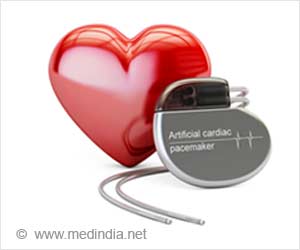AspireAssist was built to assist in weight loss in patients aged 22 and older who are obese, with a body mass index of 35 to 55.

‘Clinical trials showed patient lost an average of 46 pounds during the first year and another few pounds to make 50 pounds of weight loss by the second year.’





The device is considered minimally invasive and includes a tube that goes from the inside of the stomach to a port on the outside of the abdomen. The pump can be attached to the outside port as needed to remove about a third of the stomach's contents at a time. "The AspireAssist device should not be used on patients with eating disorders, and it is not intended to be used for short durations in those who are moderately overweight," the FDA said in a statement. "It is intended to assist in weight loss in patients aged 22 and older who are obese, with a body mass index of 35 to 55, and who have failed to achieve and maintain weight loss through non-surgical weight-loss therapy." Dr. Shelby Sullivan of Washington University in St. Louis, who helped test the AspireAssist and several other medical devices, as well, says it's a good option for the extremely obese.
"Patients eat less with this therapy then they did before," she said. "People think patients can eat whatever they want and then aspirate it and that's just not true. It has to be liquid enough and the particles have to be small enough to get through the tube."
"The AspireAssist approach helps provide effective control of calorie absorption, which is a key principle of weight management therapy," said the FDA's Dr. William Maisel.
"Patients need to be regularly monitored by their health care provider and should follow a lifestyle program to help them develop healthier eating habits and reduce their calorie intake," he added.
Advertisement
"Patients require frequent monitoring by a health care provider to shorten the tube as they lose weight and abdominal girth, so that the disk remains flush against their skin. Frequent medical visits are also necessary to monitor device use and weight loss and to provide counseling on lifestyle therapies," the FDA noted.
Advertisement















